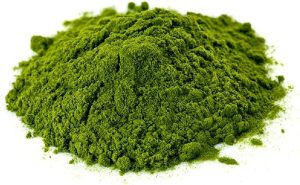
- Overview of Rose Hips Extract
- Brief History of Rose Hips Extract
- Functions of Rose Hips Extract
- Recommended Daily Intake (RDI), Recommended Dietary Allowance (RDA), Adequate Intake (AI), or Reference Nutrient Intake (RNI) for Rose Hips Extract
- Deficiency of Rose Hips Extract
- Food Sources of Rose Hips Extract and Where to Get It From
- Rose Hips Extract and Its Interaction with Other Medications
- Websites and Articles to Delve into the Benefits of Rose Hips Extract
- Disclaimer
Overview of Rose Hips Extract
Rose hips extract, derived from the fruit of the rose plant, is valued for its rich nutrient profile and potential health benefits.
Packed with vitamin C, antioxidants, and other bioactive compounds, rose hips extract offers immune system support, skin health benefits, and anti-inflammatory properties. The extract may aid in joint health, cardiovascular well-being, and weight management. Its antioxidant content helps combat free radicals, contributing to overall health and potentially reducing the risk of chronic diseases.
Rose hips extract is available in various forms, including teas, supplements, and culinary preparations. While generally considered safe, individuals on certain medications or with specific health conditions should consult with healthcare professionals before incorporating it into their routine.
Rose hips extract is derived from the fruit of the wild rose plant (Rosa canina) and is known for its rich nutritional profile and potential health benefits. Here’s a concise overview of rose hips extract:
| Aspect | Information |
|---|---|
| Source | Fruit of the wild rose plant (Rosa canina) |
| Nutrient Content | – High in vitamin C – Rich in antioxidants, including flavonoids, carotenoids, and polyphenols |
| Potential Benefits | – Immune support – Anti-inflammatory properties – Joint health – Skin care |
| Research Areas | – Arthritis management – Digestive health |
| Culinary Uses | – Teas, jams, jellies, syrups |
| Dosage and Precautions | – Dosage varies; consult healthcare professional – Rare allergies, potential medication interactions |
| Forms | – Capsules, powders, liquid extracts |
| Historical Significance | – Ancient use in Greek, Roman, and Egyptian cultures – WWII: Vitamin C supplement due to citrus scarcity |
| Modern Popularity | – Rise as a dietary supplement in herbalism |
| Sustainability | – Generally harvested sustainably, often from wild rose bushes |
| Current Research Focus | – Further understanding of therapeutic effects |
Please note that the information provided is a general overview, and details may vary based on specific products and formulations. Always consult with a healthcare professional before incorporating new supplements into your routine.
Brief History of Rose Hips Extract
The use of rose hips dates back centuries, with historical accounts suggesting its various applications in different cultures. Here’s a brief history of rose hips extract:
- Ancient Civilizations:
- Rose hips have a long history of medicinal use in ancient civilizations such as the Greeks, Romans, and Egyptians. These cultures recognized the therapeutic properties of the fruit and used it to treat various ailments.
- Traditional Medicine:
- Throughout history, rose hips were employed in traditional medicine for their high vitamin C content. Indigenous populations in North America, Europe, and Asia used rose hips to address conditions like colds, flu, and infections.
- World War II:
- During World War II, when citrus fruits were scarce in some regions, rose hips gained renewed importance for their vitamin C content. The British government, for example, encouraged the collection of rose hips to produce rose hip syrup as a vitamin C supplement for the population.
- Culinary Uses:
- Beyond medicinal applications, rose hips have been used in culinary traditions. They are known for their tart flavor and are used in the preparation of teas, jams, jellies, and syrups.
- Scientific Exploration:
- In the 20th century, scientific research began to delve into the chemical composition of rose hips, confirming their high vitamin C content as well as the presence of other beneficial compounds like antioxidants.
- Modern Herbalism and Supplements:
- As interest in herbal remedies and natural supplements grew, rose hips extract gained popularity as a dietary supplement. It became readily available in various forms, including capsules, powders, and liquid extracts, for those seeking to harness its potential health benefits.
- Ongoing Research:
- In recent decades, scientific studies have explored the potential therapeutic properties of rose hips extract, including its anti-inflammatory and antioxidant effects. Research has focused on its possible benefits for conditions such as arthritis, immune support, and skin health.
- Sustainability Practices:
- Harvesting rose hips is often done sustainably, with a focus on wild collection or cultivation practices that minimize environmental impact.
The history of rose hips extract reflects a combination of traditional wisdom, culinary applications, wartime necessity, and modern scientific exploration. Today, it continues to be valued for its nutritional content and potential health benefits, contributing to the diverse landscape of herbal remedies and natural supplements.
Certainly! Here’s a concise history of rose hips extract presented in a table:
| Time Period | Key Events and Uses |
| Ancient Civilizations | Medicinal use in Greek, Roman, and Egyptian cultures |
| Traditional Medicine | Used for its high vitamin C content in various cultures |
| World War II | Utilized as a vitamin C supplement due to citrus scarcity |
| Culinary Applications | Used in teas, jams, jellies, and syrups |
| Scientific Exploration | Chemical analysis reveals vitamin C and antioxidants |
| Modern Herbalism | Gains popularity as a dietary supplement |
| Ongoing Research | Investigating anti-inflammatory and antioxidant effects |
| Sustainability | Harvested sustainably, often from wild rose bushes |
This table provides a quick overview of the historical milestones and uses of rose hips extract.
Functions of Rose Hips Extract
Rose hips extract is derived from the small, colorful fruits that develop on rose plants after the flowers have bloomed. These fruits, known as rose hips, are particularly rich in nutrients and bioactive compounds. The extract from rose hips is valued for its potential health benefits. Here are some of the functions and properties associated with rose hips extract:
- Rich in Vitamins and Minerals:
- Rose hips are a potent source of vitamin C, which is essential for immune system function, collagen synthesis, and antioxidant protection.
- They also contain vitamins A, B, and E, as well as minerals like calcium and iron.
- Antioxidant Properties:
- Rose hips extract is known for its high antioxidant content, including flavonoids, polyphenols, and carotenoids. Antioxidants help neutralize free radicals in the body, which can contribute to aging and various diseases.
- Immune System Support:
- The high vitamin C content in rose hips extract is beneficial for supporting the immune system. It may help prevent and alleviate colds and other respiratory infections.
- Anti-Inflammatory Effects:
- Some studies suggest that rose hips extract may possess anti-inflammatory properties, which could be beneficial for conditions involving inflammation.
- Skin Health:
- The antioxidants in rose hips extract may contribute to skin health by protecting against oxidative stress and promoting collagen formation. This can help improve skin elasticity and reduce signs of aging.
- Joint Health:
- The anti-inflammatory properties of rose hips extract may be helpful in managing joint pain and stiffness, making it potentially beneficial for individuals with arthritis.
- Cardiovascular Health:
- Some research indicates that the bioactive compounds in rose hips extract may have positive effects on cardiovascular health, including the reduction of cholesterol levels and improvement of blood vessel function.
- Digestive Health:
- Rose hips extract may have mild laxative effects and can be used to alleviate constipation. It also contains fiber, which is beneficial for digestive health.
- Weight Management:
- The fiber content in rose hips extract may contribute to a feeling of fullness, potentially aiding in weight management by reducing appetite.
- Anticancer Properties:
- Some studies suggest that the antioxidants in rose hips extract may have potential anticancer properties, although more research is needed in this area.
It’s important to note that while rose hips extract offers various potential health benefits, individual responses may vary, and it’s always advisable to consult with a healthcare professional before incorporating any new supplements into your routine, especially if you have pre-existing health conditions or are taking medications.
Recommended Daily Intake (RDI), Recommended Dietary Allowance (RDA), Adequate Intake (AI), or Reference Nutrient Intake (RNI) for Rose Hips Extract
As of 2023, there isn’t a specific Recommended Dietary Allowance (RDA), Adequate Intake (AI), or Reference Nutrient Intake (RNI) established for rose hips extract itself by authorities or any other reputable organisations. The nutritional recommendations typically focus on specific vitamins and minerals rather than extracts from particular plants.
However, the nutritional content of rose hips extract can be influenced by factors such as the preparation method and concentration. If you’re interested in incorporating rose hips extract into your diet or supplement routine, it’s advisable to follow the recommended serving size provided by the product manufacturer. Additionally, consulting with a healthcare professional or a registered dietitian is recommended, especially if you have specific health concerns, are on medications, or have pre-existing conditions.
Keep in mind that research on the health benefits of rose hips extract is ongoing, and while it has potential advantages, more studies are needed to fully understand its impact on various health aspects. Always make informed decisions based on your individual health needs and consult with professionals when in doubt.
Deficiency of Rose Hips Extract
Rose hips extract is not an essential nutrient, but it is a concentrated source of certain vitamins, minerals, and antioxidants that can contribute to overall health. Therefore, a deficiency of rose hips extract itself is not a recognized condition. However, if someone has a deficiency in the nutrients that rose hips extract provides, it may lead to specific health issues. Here are some of the key nutrients found in rose hips extract and the potential consequences of their deficiencies:
- Vitamin C Deficiency:
- Rose hips are particularly rich in vitamin C. A deficiency in vitamin C can lead to scurvy, a condition characterized by fatigue, weakness, joint and muscle aches, and skin problems.
- Vitamin A Deficiency:
- Rose hips also contain vitamin A. A deficiency in vitamin A can result in night blindness, dry skin, and a weakened immune system.
- Vitamin E Deficiency:
- Vitamin E is another antioxidant present in rose hips extract. A deficiency in vitamin E may lead to neurological issues, muscle weakness, and vision problems.
- Calcium and Iron Deficiency:
- Rose hips provide small amounts of minerals such as calcium and iron. Deficiencies in these minerals can lead to problems such as weakened bones (osteoporosis) and anemia, respectively.
It’s important to note that obtaining nutrients through a balanced diet that includes a variety of fruits, vegetables, whole grains, and other nutrient-rich foods is generally preferable to relying on supplements or extracts. While rose hips extract can be a valuable source of certain nutrients, it’s not a substitute for a well-rounded and nutritious diet.
If you suspect you have nutrient deficiencies or have specific health concerns, it’s recommended to consult with a healthcare professional or a registered dietitian. They can assess your individual needs and guide you on appropriate dietary choices or supplementation if necessary.
Food Sources of Rose Hips Extract and Where to Get It From
Rose hips, the fruit of the rose plant, can be used to make rose hips extract. Here are some food sources where you can find rose hips and ways to incorporate them into your diet:
- Fresh Rose Hips:
- If you have access to rose bushes that have not been treated with pesticides, you can harvest fresh rose hips. They can be used in various culinary preparations.
- Dried Rose Hips:
- Dried rose hips are commonly available in health food stores, herbal shops, and online. They are often used to make tea, jams, or added to recipes.
- Rose Hip Tea:
- Rose hip tea is a popular way to consume the benefits of rose hips. You can find commercially available rose hip tea bags or loose dried rose hips to make your own tea.
- Rose Hip Jam or Jelly:
- Some people enjoy rose hip jam or jelly. This can be spread on toast, added to yogurt, or used as a topping for desserts.
- Rose Hip Syrup:
- Rose hip syrup can be made by simmering rose hips with sugar and water. It can be used as a sweetener or drizzled over pancakes and desserts.
- Supplements and Extracts:
- Rose hips extract is available in supplement form, including capsules, tablets, and liquid extracts. These supplements can be found in health food stores, pharmacies, and online. It’s important to follow the recommended dosage on the product label.
When using fresh rose hips, it’s crucial to ensure that they come from plants that have not been treated with pesticides or other chemicals. If you’re uncertain about the source, it’s safer to choose commercially available dried rose hips or extracts from reputable suppliers.
Before incorporating rose hips or rose hips extract into your diet, especially in supplement form, it’s advisable to consult with a healthcare professional. They can provide guidance based on your individual health status and potential interactions with medications or existing conditions.
Rose Hips Extract and Its Interaction with Other Medications
While rose hips extract is generally considered safe for most people when used in moderate amounts as part of a balanced diet or in supplement form, there can be potential interactions with certain medications. Here are some considerations regarding the interactions between rose hips extract and medications:
- Anticoagulant/Antiplatelet Drugs:
- Rose hips contain vitamin C, which has antiplatelet effects. If you are taking anticoagulant or antiplatelet medications (e.g., warfarin, aspirin), the additional antiplatelet effects of rose hips may increase the risk of bleeding. It’s important to monitor and discuss this with your healthcare provider.
- Iron Absorption:
- Rose hips contain vitamin C, which enhances the absorption of non-heme iron (the type of iron found in plant-based foods). While this is generally beneficial, individuals taking iron supplements for medical reasons should be aware that the increased absorption may affect their iron levels.
- Medications Metabolized by the Liver (Cytochrome P450):
- Some compounds in rose hips extract may interact with medications metabolized by the liver through the cytochrome P450 system. While specific interactions may vary, it’s advisable to consult with a healthcare professional if you are taking medications that undergo hepatic metabolism.
- Diabetes Medications:
- Rose hips may have hypoglycemic effects, and individuals taking medications to manage diabetes should monitor their blood sugar levels closely. Adjustments to medication dosages may be necessary under the guidance of a healthcare provider.
- Blood Pressure Medications:
- Rose hips may have a mild hypotensive (blood pressure-lowering) effect. Individuals taking medications for hypertension should be cautious and consult with their healthcare provider to monitor blood pressure levels.
It’s crucial to communicate openly with your healthcare provider about any supplements, including rose hips extract, that you are considering taking. They can provide personalized advice based on your health status, medications, and potential interactions. Additionally, when using supplements, it’s important to follow recommended dosages and not exceed safe levels, as excessive intake may lead to adverse effects. Always disclose all supplements and medications you are taking to your healthcare provider for a comprehensive assessment of potential interactions and their implications for your health.
Websites and Articles to Delve into the Benefits of Rose Hips Extract
If you’re interested in learning more about the benefits of rose hips extract, here are some reputable websites and articles that provide information on this topic:
- National Center for Complementary and Integrative Health (NCCIH):
- Website: NCCIH – Rose Hips
- The NCCIH provides evidence-based information on various herbal supplements, including rose hips. It covers potential uses, safety considerations, and links to relevant research.
- WebMD – Rose Hip:
- Website: WebMD – Rose Hip
- WebMD offers an overview of rose hips, including information on uses, side effects, interactions, and user ratings.
- Mayo Clinic – Herbal Supplements: Background:
- Website: Mayo Clinic – Herbal Supplements
- Mayo Clinic provides information on rose hips, discussing its uses, effectiveness, dosage, and potential side effects.
- Examine.com – Rose Hip:
- Website: Examine.com – Rose Hip
- Examine.com is known for its evidence-based approach to supplements. The page on rose hip covers its potential benefits, usage, and scientific references.
- Healthline – The Benefits of Rose Hip:
- Website: Healthline – The Benefits of Rose Hip
- Healthline offers a comprehensive article on the potential health benefits of rose hips, including its nutritional content and possible uses.
- ScienceDirect – Rose Hip (Rosa canina L.): A Functional Food Perspective:
- Article: Rose Hip (Rosa canina L.): A Functional Food Perspective
- This scientific article delves into the functional food perspective of rose hip, discussing its nutritional composition and potential health effects.
Before making any significant changes to your diet or supplement regimen, it’s advisable to consult with a healthcare professional, especially if you have pre-existing health conditions or are taking medications. Keep in mind that while rose hips extract may offer certain benefits, individual responses can vary, and more research is needed to fully understand its effects on different aspects of health.
Disclaimer
The information is solely provided for educational purposes. It is not intended to diagnose, treat, cure, or prevent any disease. Seek the advice of your physician or qualified healthcare provider with any questions you may have regarding a medical condition at all times. Never disregard professional medical advice because of something you have read or learned from this article.






